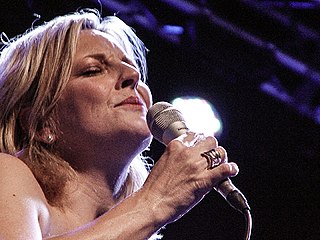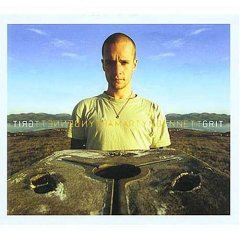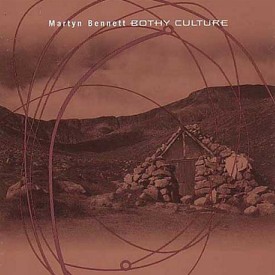
Scotland is internationally known for its traditional music, which remained vibrant throughout the 20th century and into the 21st, when many traditional forms worldwide lost popularity to pop music. In spite of emigration and a well-developed connection to music imported from the rest of Europe and the United States, the music of Scotland has kept many of its traditional aspects; indeed, it has itself influenced many forms of music.

Scottish folk music is music that uses forms that are identified as part of the Scottish musical tradition. There is evidence that there was a flourishing culture of popular music in Scotland during the late Middle Ages, but the only song with a melody to survive from this period is the "Pleugh Song". After the Reformation, the secular popular tradition of music continued, despite attempts by the Kirk, particularly in the Lowlands, to suppress dancing and events like penny weddings. The first clear reference to the use of the Highland bagpipes mentions their use at the Battle of Pinkie Cleugh in 1547. The Highlands in the early seventeenth century saw the development of piping families including the MacCrimmons, MacArthurs, MacGregors and the Mackays of Gairloch. There is also evidence of adoption of the fiddle in the Highlands. Well-known musicians included the fiddler Pattie Birnie and the piper Habbie Simpson. This tradition continued into the nineteenth century, with major figures such as the fiddlers Neil and his son Nathaniel Gow. There is evidence of ballads from this period. Some may date back to the late Medieval era and deal with events and people that can be traced back as far as the thirteenth century. They remained an oral tradition until they were collected as folk songs in the eighteenth century.
Martyn Bennett was a Canadian-Scottish musician who was influential in the evolution of modern Celtic fusion, a blending of traditional Celtic and modern music. He was a piper, violinist, composer and producer. He was an innovator and his compositions crossed musical and cultural divides. Sporting dreadlocks at the height of his performing career, his energetic displays led to descriptions such as "the techno piper". Diagnosis of serious illness at the age of thirty curtailed his live performances, although he completed a further two albums in the studio. He died fifteen months after release of his fifth album Grit.
Pibroch, piobaireachd or ceòl mòr is an art music genre associated primarily with the Scottish Highlands that is characterised by extended compositions with a melodic theme and elaborate formal variations. Strictly meaning "piping" in Scottish Gaelic, piobaireachd has for some four centuries been music of the Great Highland Bagpipe. Music of a similar nature, pre-dating the adoption of the Highland pipes, has historically been played on the wire-strung Gaelic harp (clarsach) and later on the Scottish fiddle, and this form is undergoing a revival.

Voyager is the 17th music album by Mike Oldfield, released in 1996 by Warner Music UK. It is a Celtic-themed album with new compositions intertwined with traditional pieces.

Wolfstone are a Scottish musical group founded in 1989, who play Celtic rock. Their repertoire consists of both original songs and traditional folk pieces. To date, they have released seven studio albums, the latest, Terra Firma, in 2007. The band record on their own label, Once Bitten Records. The group are named after the "Wolfstone", a Pictish stone originally sited at Ardross, Easter Ross, close to where the band initially recorded.

Salsa Celtica are a Scottish group that plays a fusion of salsa music with traditional Scottish instruments, including elements of folk and jazz.

The Celtic harp is a triangular frame harp traditional to Ireland and Scotland. It is known as cláirseach in Irish and clàrsach in Scottish Gaelic. In Ireland and Scotland, it was a wire-strung instrument requiring great skill and long practice to play, and was associated with the Gaelic ruling class. It appears on Irish and British coins and coat of arms of the Republic of Ireland, the United Kingdom and Canada.
Sarah Frances Beamish is a British composer and violist. Her works include chamber, vocal, choral and orchestral music. She has also worked in the field of music, theatre, film and television, as well as composing for children and for her local community.

The BBC Scottish Symphony Orchestra is a Scottish broadcasting symphony orchestra based in Glasgow. One of five full-time orchestras maintained by the British Broadcasting Corporation (BBC), it is the oldest full-time professional radio orchestra in Scotland. The orchestra is based at City Halls in Glasgow.

Claire Martin, OBE is an English jazz singer.
Talitha MacKenzie is a Scottish-American World Music Recording Artist, Historical Dance & Music Instructor and performer. Initially known for her work as Vocalist in the original duo Mouth Music, she has also maintained a highly respected solo career. Although most associated with Celtic and Gaelic music, she performs a wide range of Early Music and Dance, as well as her own compositions.

Grit is the last studio album by the Scottish Celtic fusion artist Martyn Bennett. It was released on 13 October 2003 on the Real World label.

Bothy Culture is the second studio album by the Scottish Celtic fusion artist Martyn Bennett, released in January 1998 on the Rykodisc label. After winning critical acclaim for his debut album Martyn Bennet (1996), Bothy Culture builds upon that album's mixing of Scottish Celtic music with farther, international folk music styles and contemporary electronic music. The album celebrates and draws upon the music of Bennett's native Gaeldom as well as the music of Islam and Scandinavia, with Bennett finding and emotionally connecting to the similarities between the geographically dispersed styles. It mixes the styles with contemporary electronic music such as breakbeat and drum and bass.
Kate Targett-Adams is a singer, songwriter, MC and Celtic harpist. She has released 6 albums and has enjoyed most success singing in Chinese in China.

John Rae is a jazz drummer, composer, and band leader.

Margaret Bennett is a Scottish writer, folklorist, ethnologist, broadcaster, and singer. Her main interests lies in the field of traditional Scottish folk culture and cultural identity of the Scots in Scotland and abroad. The late Hamish Henderson, internationally distinguished poet and folklorist, said about her: Margaret embodies the spirit of Scotland.

The Pilgrim is a live album by the composer Shaun Davey. It was recorded at Festival Interceltique de Lorient, Glasgow Royal Concert Hall.
The School of Scottish Studies was founded in 1951 at the University of Edinburgh. It holds an archive of over 9000 field recordings of traditional music, song and other lore, housed in George Square, Edinburgh. The collection was begun by Calum Maclean - brother of the poet, Sorley MacLean - and the poet, writer and folklorist, Hamish Henderson, both of whom collaborated with American folklorist Alan Lomax, who is credited as being a catalyst and inspiration for the work of the school.

Su-a Lee is a classical musician born in Seoul, South Korea, married to Gordon Davidson in 2013 and resident in Edinburgh, Scotland.














